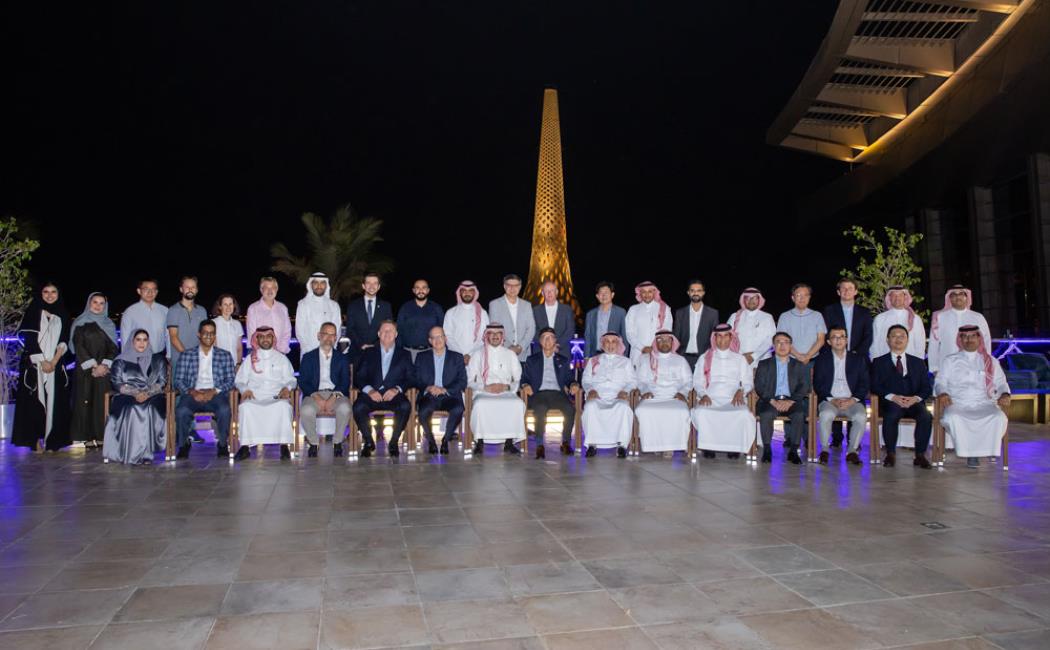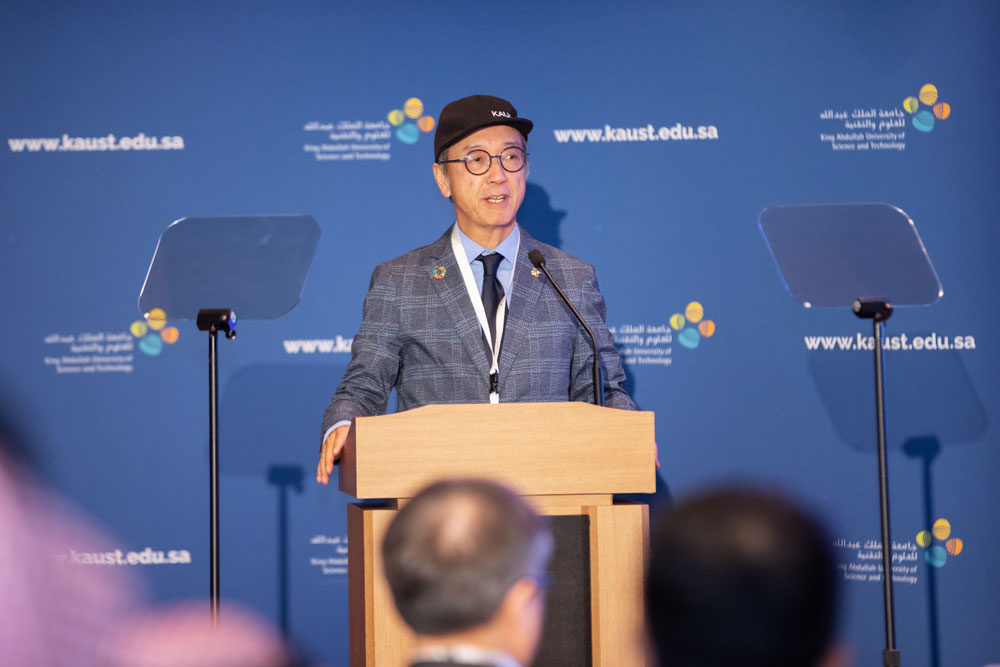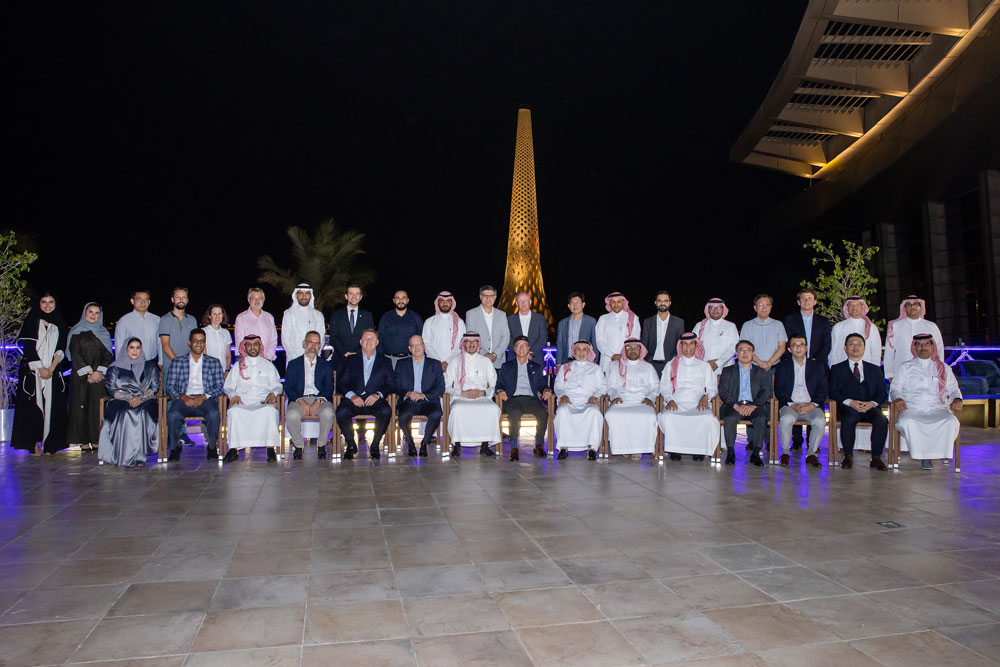
22 August, 2022
Transportation is never only about how we move people; it is primarily how we move goods. According to the UN: by 2030 there will be over one billion more people on the planet, and the demands on transportation can only increase. Freight volume is expected to grow by more than 70%. Maritime transportation accounts for as much as 80% of the world’s merchandise in volume handled by ports. Aviation may still be recovering from the effects of the pandemic, but the expectation is that by mid-2030s no fewer than 200,000 commercial flights per day are expected to take off and land around the world and so far, efforts have been insufficient to generate the scale and focus to transform the world’s mobility.
To advance sustainability within the mobility sector King Abdullah University of Science and Technology (KAUST) and the Oil Sustainability Program recently launched the FLEET Consortium. The Consortium plans to develop innovative fuels, lubricants, and efficient engine technologies and, in the words of Prof. Bill Roberts, Director of the Clean Combustion Research Center (CCRC), “represents a wonderful opportunity for KAUST and the CCRC to provide impactful solutions to greenhouse gas emissions across the entire mobility sector, both for the Kingdom and globally.” It is the CCRC that initiated FLEET.

During the official launch, KAUST President Tony Chan said in his speech, “the goal of FLEET to improve the economic and environmental competitiveness of the transportation sector through R&D on priority topics on engines, sustainable fuels, and lubricants, is very much aligned with our institutional priorities. Improving environmental and economic competitiveness of the transportation sector is a goal we share with the industry and government sector, and the partnership with our FLEET members is essential for success.”
Sustainability is at the core of KAUST’s education, research, innovation, and operation to realize the urgent solutions and actions needed to address challenges in the water, environment, food, and energy sectors.
Through the platform of FLEET, Program Director, Mohammad Al Tayyar explained, “The Oil Sustainability Program with its partners, aims to address and innovatively transform the global transportation sector through three main approaches: fuel enhancement, engine development, and engine exhaust to reduce CO2 emissions.”
FLEET is being led by the CCRC’s Prof. Mani Sarathy and Prof. Aamir Farooq in collaboration with OSP. As Prof. Mani explained, “in early 2021, the structure of the consortium and its founding members were carefully considered by KAUST and OSP. It was clear to both parties that this consortium model would impact sustainable transportation research by bringing together leading research institutes, industry leaders, and government stakeholder.”
Furthermore Prof. Farooq added, “FLEET Members stand to gain a higher return on their R&D through the consortium compared to direct R&D funding. They will be involved in several innovative research projects, participate in research roundtable sessions with leading industry players, and be able to develop human capital technical know-how. Eventually, these research projects are expected to be piloted and commercialized by FLEET members.”
FLEET is already working on six projects. Commenting on these Mansour Al-Zahrani, the GM of Maintenance and Scheduling at SAPTCO said, “FLEET initiated research studies on six projects related to Oil Sustainability Program - OSP. Three projects out of six provide technology solutions to carbon emissions in the transportation industry”
FLEET’s 2022-2023 projects:
Evaluate the technical feasibility of feeding a refinery with green methanol to produce gasoline using standard refinery equipment and a techno-economic assessment in the European context.
Experimental and modelling investigation of MtG, EtG, and their blends with renewable and petroleum-derived additives – includes ignition studies and vehicle testing
To explore the decarbonization potential of using grey and blue hydrogen in PEM fuel cell vehicles in Saudi Arabia by comparing life-cycle emissions of diesel engine, electric vehicles and PEM fuel cell vehicles for heavy-duty transportation
Modelling of PEM fuel cell to relate cell voltage to pressure, temperature, gas diffusion layer morphology, platinum type, ionomer molecular structure, and impurities
Utilize waste heat in exhaust gas to drive advanced heat recovery processes for increased efficiency of marine engines
Develop new numerical tools for predicting spray and combustion behavior under supercritical conditions present in modern marine engines and aviation turbines
FLEET links industry with groundbreaking research centers like the CCRC, and provides a platform for industry to utilize these laboratories to find solutions for challenges specific to them. Advancements in sustainability can then be scaled up more rapidly. By joining, members demonstrate their commitment to developing sustainable transport and mobility solutions. Founding members are Aramco, Hyundai, Toyota, Bahri, Pacific Green Technologies and SAPTCO.

“Bahri is happy to be a member of the FLEET Consortium, which has taken up some very important projects with the aim of improving efficiency in fuels and engines as well as reducing the carbon footprint in the transportation sector. Bahri, being a shipping company and a logistic service provider is a heavy consumer of energy and fuels. Bahri has always been looking at ways to optimize and improve our energy and fuel consumption – both for economic and environmental reasons. We are highly committed towards meeting sustainability and decarbonization goals of the Kingdom and the ones formulated by worldwide organizations such as the IMO. We believe that the investment into the research and development of the chosen projects by FLEET will surely help define pathways to a sustainable future,” said Abdulaziz Sabri, President – Ship Management at Bahri and FLEET member.
Yohan Chi, Ph. D, Senior Research Fellow and spokesperson of FLEET member Hyundai said,“Hyundai Motor Company and Kia Corporation (Hyundai Motor Group, collectively) have announced Carbon Neutrality 2045 roadmaps, committing to become carbon neutral in their global products and operations by 2045. Hyundai Motor Group is conducting various R&D activities to minimize greenhouse gas emissions from internal combustion engine (ICE) vehicles, as well as battery electric vehicles (BEV) and fuel cell electric vehicles (FCEV). In the FLEET Consortium, Hyundai Motor Group looks forward to working closely with partners toward eco-friendly fuel and expects to effectively achieve carbon neutrality by significantly reducing carbon emissions through the new eco-friendly engine technology.”
Considering the staggering demand for mobility and freight, the importance and relevance of launching a consortium like FLEET cannot be overstated. And while FLEET is only in its first official year, Aramco Head of R&D, Gerard de Nazelle is confident:
“Paraphrasing Margaret Mead, ‘never doubt that FLEET, a small group of committed scientists and engineers, can change the world - indeed we will,’ by shaping affordable and sustainable solutions to mobility challenges for billions across the world,” he said.